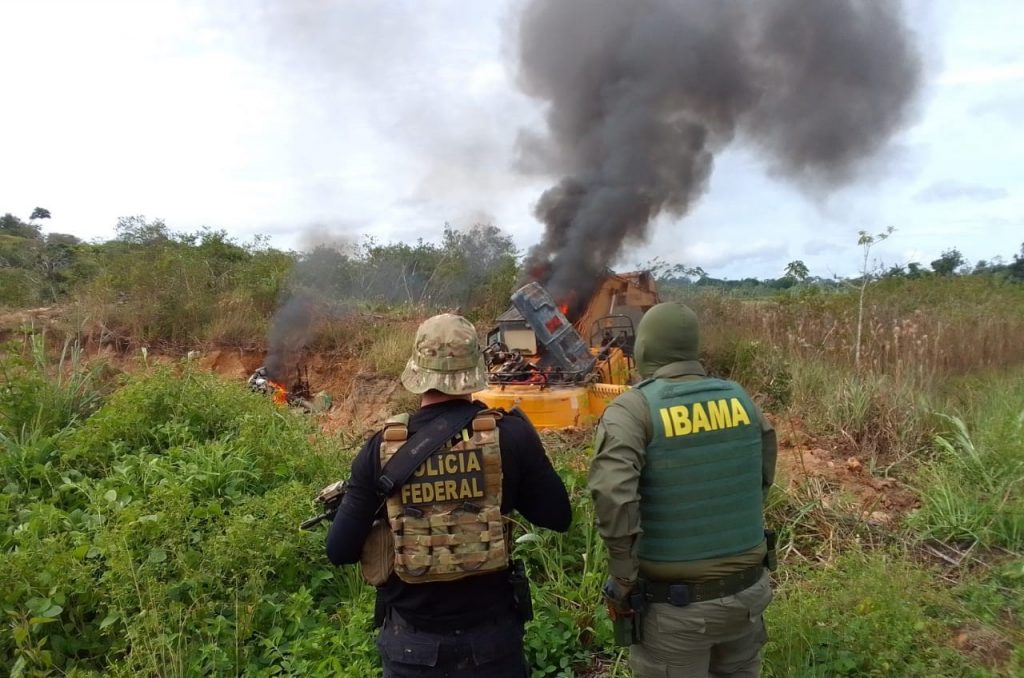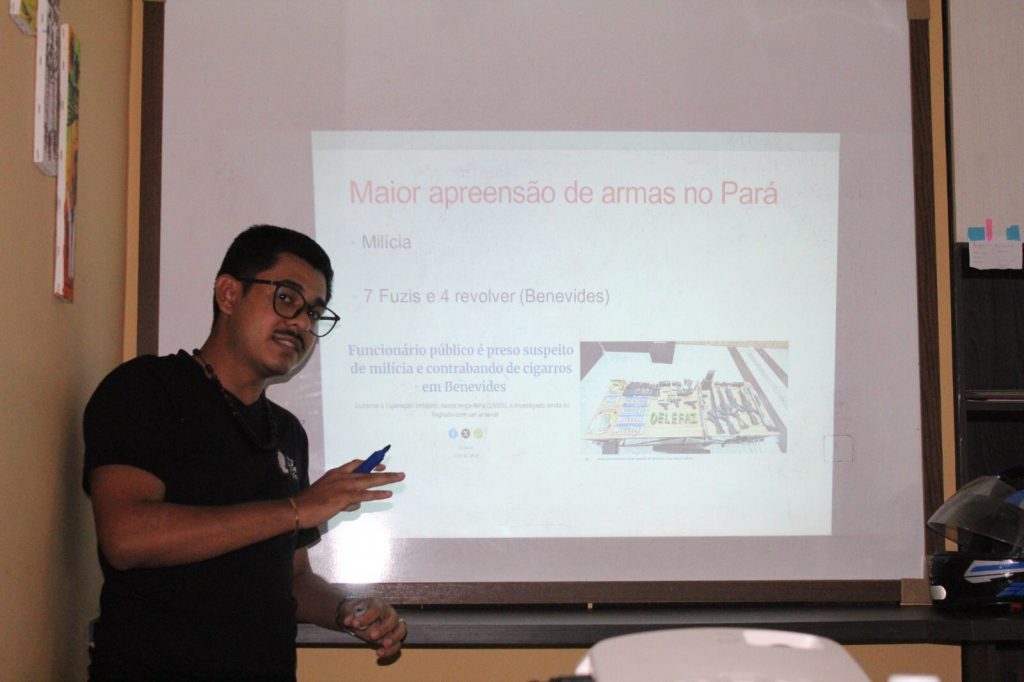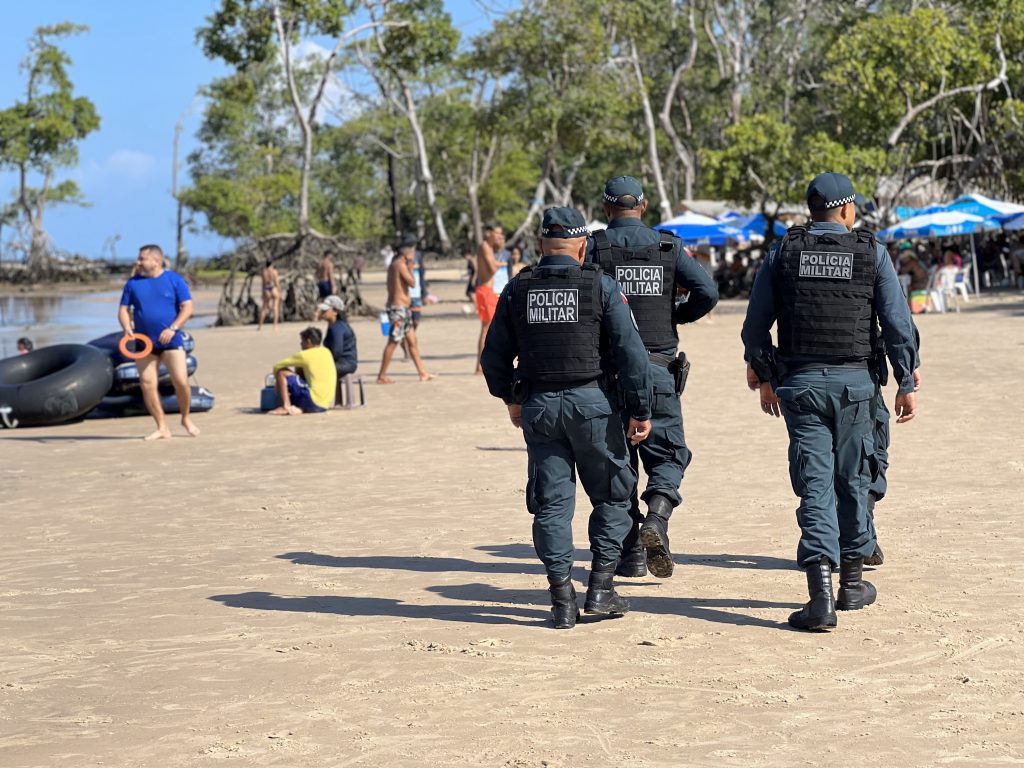Report points to growing environmental conflicts in Pará, COP30 host state
18 de June de 2025

By Fabyo Cruz – From Cenarium
BELÉM (PA) – Pará is among the states most affected by socio-environmental conflicts and environmental crimes in the Legal Amazon, according to the report “Beyond the Forest: Socio-environmental Conflicts and Information Deserts,” prepared by the Security Observatory Network (ROS). Released this Tuesday, the 17th, the document, which monitors nine Brazilian states (AM, BA, CE, MA, PA, PE, PI, RJ, and SP), reveals that Pará accounted for 22.2% of the 495 incidents recorded between 2023 and 2024, second only to Maranhão.
With a total of 6,252 environmental crimes recorded during this period, Pará is among the states with the highest absolute number of cases, surpassed only by São Paulo. The most frequent crimes involve fauna (2,873 incidents) and flora (2,524), followed by pollution (675), mineral exploitation (101), and other environmental violations (79). The data was provided by the State Secretariat for Public Security and Social Defense (Segup) and included detailed information on the type of crime, location, responsible police station, and victim profiles.
Unlike other states that did not provide data on traditional peoples and communities, Pará presented information that allows for a more in-depth analysis of environmental violence. The records also included crimes motivated by land conflicts—a classification still lacking legal definition, but considered relevant by the study. In these cases, agrarian motives are identified as the cause of crimes such as homicide, land invasion, and coercion.
Illegal mining activities
The report also highlights Pará’s negative prominence in records of illegal mining activities, with 48 of the 71 cases documented nationwide. Mineral exploitation alone accounts for 72% of the state’s exports, underscoring the scale of the activity’s impact on local territories and communities. This overlap of economic interests—often legal—with illegal practices has intensified conflicts in areas traditionally occupied by Indigenous peoples, quilombolas, and riverine communities.

In an interview with CENARIUM, researcher Lucas Moraes, of the Security Observatory Network in Pará, stated that the abundance of natural resources attracts criminal organizations and companies that illegally exploit the territory. According to him, the absence of government oversight and the involvement of political agents and members of security forces facilitate these practices. “Institutional complicity threatens the survival of traditional communities, with impacts such as river pollution, deforestation, and rising violence,” he explained.

Punitive approach
The Marajó archipelago region is cited as an example of a punitive approach to public security management. According to the Observatory Network, police operations carried out in the first three months of 2025 led to the arrest of 56 people and the seizure of only 4.6 kg of narcotics. The report points out that the repression, disproportionate and poorly coordinated with local communities, generates fear, stigmatization, and reinforces historical inequalities.

Lucas Moraes notes that the presence of the State in Marajó is expressed more through repression than protection. “The police adopt aggressive tactics that instill fear and mistrust among residents, worsening the sense of insecurity,” he said.
Lack of accurate data
In terms of variation, Pará remained stable between 2023 and 2024, with an increase of only 0.26% in environmental crime reports. However, the report warns that this figure does not reflect the actual number of violations against traditional populations, as most official data is categorized under Law No. 9.605/1998, which does not cover, for example, land conflicts or territorial invasions.
‘Information desert’
In addition to producing official data, the report emphasizes the importance of initiatives such as the Marajó Observatory, which analyzes local media coverage and denounces the lack of context in news reports about public security in the region. The predominance of narratives that reinforce the criminalization of vulnerable populations is identified as one of the factors feeding the so-called “information desert” in the Amazon.
According to the researcher, the low journalistic coverage of environmental crimes in the region is worsened by the influence of politicians and businesspeople involved in illegal activities. “Many cases go unreported because the perpetrators are powerful figures, which hinders accountability. The State must strengthen its institutional presence with public services and development policies that ensure environmental justice and visibility for affected communities,” he stated.

